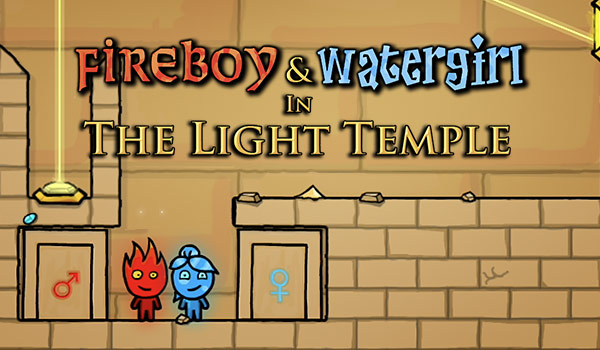In the ever-evolving world of competitive online gaming, few titles have made as significant an impact as Apex Legends. Developed by Respawn Entertainment and published by Electronic Arts, Apex Legends took the gaming community by storm upon its surprise launch in February 2019. Combining fast-paced movement, hero-based gameplay, and tactical team strategies, Apex quickly earned its place among the top battle royale games alongside Fortnite, Warzone, and PUBG.
What makes Apex Legends stand out is its unique approach to the battle royale genre. The game features a cast of diverse "Legends," each with their own abilities and backstories, set in a futuristic sci-fi universe that's both deep and constantly expanding. With seasonal updates, a strong esports scene, and a loyal fanbase, Apex Legends continues to innovate while remaining one of the most popular games on the planet.
1. The Origin of Apex Legends
The creation of Apex Legends is a story of calculated risk and brilliant execution. Respawn Entertainment, known for the Titanfall series, had initially gained a reputation for solid first-person shooters with tight mechanics and fluid movement.
A Surprise Launch
Unlike traditional game releases, Apex Legends was launched with no prior marketing hype. Respawn quietly developed the title and dropped it on February 4, 2019. Within 72 hours, the game amassed over 10 million players.
A Titanfall Universe
Set in the same universe as Titanfall, Apex inherited the smooth gunplay and fast traversal of its predecessor, but with a unique spin: no wall running or titans, just heroes and high-stakes firefights.
2. Gameplay Mechanics and Features
The core of Apex Legends revolves around squad-based combat, fluid mobility, and a wide array of weapons and items. Matches typically involve 20 squads of three players (or other configurations during limited-time modes), dropping into large, beautifully crafted maps.
Movement and Gunplay
One of Apex’s most praised features is its buttery-smooth movement. Sliding down hills, climbing walls, and ziplines create a vertical and kinetic battlefield. Coupled with balanced weapons and detailed recoil patterns, the combat is both satisfying and skill-intensive.
Ping System Innovation
Apex revolutionized communication in multiplayer gaming with its intelligent ping system. Players can mark enemies, loot, locations, and much more without using voice chat—a feature now adopted by many other titles.
3. Meet the Legends
Apex Legends features a growing roster of characters, known as Legends, each with unique abilities that contribute to team strategy. These Legends are grouped into categories like Support, Recon, Offensive, and Defensive.
Fan-Favorite Legends
-
Wraith – A stealthy assassin with teleportation powers.
-
Bloodhound – A recon tracker who can reveal enemies through walls.
-
Gibraltar – A tanky defender with protective domes and airstrikes.
-
Octane – A speedster who uses adrenaline for unmatched mobility.
Regular Legend Updates
Each season introduces a new Legend, keeping the meta fresh. Recent additions include Vantage, Catalyst, and Ballistic, adding unique twists to team compositions.
4. Maps and Environments
Apex Legends currently features multiple rotating maps that serve as battlegrounds for the Apex Games. Each map offers diverse biomes, terrain, and loot opportunities.
Current Maps
-
Kings Canyon – The original map, filled with cliffs, desert zones, and military ruins.
-
World’s Edge – Features lava fields, icy zones, and urban settings.
-
Olympus – A floating city in the sky with open areas and high-tech architecture.
-
Storm Point – A massive tropical island with wildlife threats and dynamic weather.
Evolving Landscapes
Maps undergo major changes each season. Locations are destroyed, rebuilt, or altered to reflect ongoing storylines, keeping gameplay fresh and engaging.
5. Ranked Mode and Competitive Play
Apex Legends offers both casual and competitive experiences. Ranked Mode was introduced to give skilled players a ladder to climb and bragging rights to earn.
Ranked Tiers
Players progress through tiers—Bronze, Silver, Gold, Platinum, Diamond, Master, and Apex Predator—based on kills, placement, and wins. Reaching Predator places you among the top 750 players worldwide.
Skill-Based Matchmaking
The system pairs players of similar skill levels, ensuring competitive matches while rewarding strategic teamplay over solo performance.
6. Weapons, Attachments, and Loot
Looting and gunplay are central to Apex Legends. Players land on the map unarmed and must scavenge for weapons, armor, and healing items.
Popular Weapons
-
R-99 – A high-speed SMG perfect for close-range combat.
-
VK-47 Flatline – A heavy assault rifle with solid damage and recoil.
-
Kraber – A rare sniper rifle capable of one-shot headshots.
-
Peacekeeper – A powerful shotgun with pinpoint accuracy when aimed.
Rarity and Attachments
Items are color-coded by rarity—Common, Rare, Epic, and Legendary. Attachments like scopes, barrel stabilizers, and extended magazines enhance weapon performance significantly.
7. Apex Legends Seasons and Battle Pass
Apex Legends follows a seasonal format, with each new season introducing Legends, map changes, weapons, and cosmetics.
Battle Pass Rewards
Each season comes with a Battle Pass offering free and premium tiers. Players earn XP to unlock skins, emotes, weapon charms, and Apex Packs.
Limited-Time Events
In addition to seasons, the game hosts events like "Shadow Royale" and "Winter Express," which bring unique game modes and limited-time cosmetics.
8. Cross-Platform and Mobile Play
Apex Legends has grown beyond PC and console, making its way to other platforms and devices.
Crossplay Compatibility
Players across PlayStation, Xbox, Switch, and PC can squad up thanks to full cross-platform support. However, ranked play remains platform-specific for balance.
Apex Legends Mobile
Launched globally in 2022, Apex Legends Mobile offers a tailored experience for Android and iOS, with its own unique modes and mobile-first content.
9. Apex Lore and Universe
Unlike most battle royale games, Apex Legends has a rich backstory. Each Legend has a detailed lore background, interwoven into the greater Apex universe.
The Apex Games
The battle royale setting is actually a televised sport in the Titanfall universe. Legends compete for fame, revenge, or personal reasons.
Cinematics and Comics
Respawn regularly releases animated shorts, in-game dialogues, and comic panels that advance the narrative and build character relationships, similar to how Overwatch handles lore.
10. Community, Esports, and Future Roadmap
Apex Legends has developed a vibrant community, from content creators and streamers to esports pros and fan artists.
The ALGS (Apex Legends Global Series)
EA hosts annual ALGS events, where professional teams compete for million-dollar prize pools. The competitive scene has grown into a major pillar of Apex’s longevity.
Looking Ahead
Respawn has teased long-term support for Apex Legends, including:
-
More Legends and map rotations
-
Expanded narrative arcs
-
In-game clan systems
-
Increased esports investment
-
Continued mobile development
Conclusion
Apex Legends isn’t just another battle royale—it’s a genre-defining, community-driven experience that continues to evolve. Its combination of fast-paced movement, strategic team composition, hero-based gameplay, and a rich storyline sets it apart from competitors. Whether you're a new player learning the ropes or a seasoned Predator grinding through Ranked, Apex offers a dynamic and rewarding gameplay experience every match.
With regular updates, new Legends, captivating lore, and a thriving esports scene, Apex Legends continues to thrive well into its multiple seasons. It has not only survived the battle royale trend but has become one of its strongest pillars.
So, if you're ready to drop into the arena, outwit your enemies, and climb to the top, Apex Legends awaits—where legends are born, battles are won, and victory is just a respawn away.
































